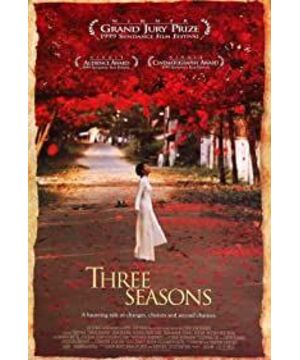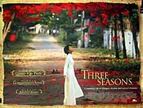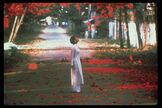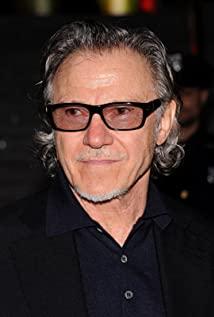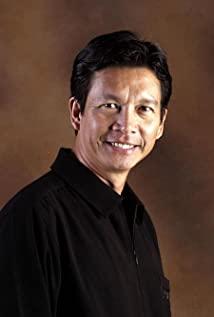Three Seasons is a film of poetry.
The desolation and helplessness of reality exudes a soft and quiet beauty in the ancient ballads. This is a typical oriental beauty, elegant, mournful, quiet, and stoic. It does not shy away from suffering, nor does it lack the depth of looking directly at life, but it interprets suffering like a wounded poem, telling life and holding on to hope in a slow rhythm.
Compared with novel films, poetry films pay more attention to the expression of artistic conception. In this film, "slowness" is a precious quality, every picture is soothing and worthy of pondering, even the performance of a tricycle race is slow. Because of the slowness, we have enough time to comprehend and think. Wisdom and beauty are thus highlighted, and art has gained full life in slowness.
The humor in the film is also impressive. The wandering little boy forgot his suffering in the cinema, (how profound! Can an adult get rid of his troubles so easily?) He accidentally slashed the movie screen in excitement, for a while, he stood bewildered Continue to show the movie room. After a brief period of amazement, the crowd suddenly cheered! The boy then fled with cheers like a hero.
The humor doesn't end there. The boy was suddenly knocked down by a smaller homeless girl while wandering, and the two little people fell silently together in the rain. At this time, it's not that I didn't notice the vicious boss who drove the girl away, or the suffering of two or more children, but I couldn't help laughing. In an instant, the light of humor blurs all suffering, and Tian Ran's helpless smile inadvertently reveals the world, and inexplicably gives people unspeakable hope.
The story ends with a near-perfect ending in hope. (It's the aesthetic taste of the Eastern tradition again!) Although I have considerable doubts about such hopes, in the face of such innocence and beauty, what else can I have the heart to say?
View more about Three Seasons reviews


